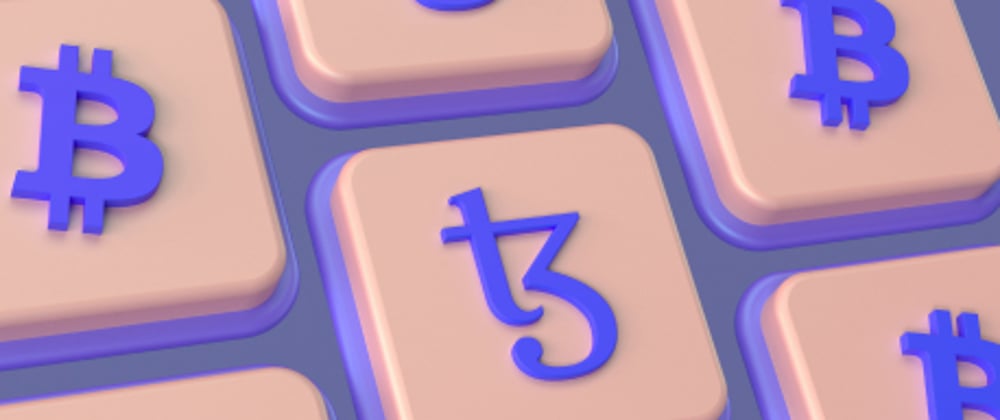Before we begin, I'd like to announce that I am now a tag moderator for the next.js tag on Dev! It's a big achievement for me, as over the years writing posts to grow my audience is finally paying off.
So, recently, we've all at least heard the mention of "Web3" or "Bitcoin/Ethereum" and similar terms - but unfortunately, a large amount of people just don't know what they're talking about.
Here are my thoughts about Web3 and it's components, in this article we'll be going over:
- What is Web3?
- What is decentralisation?
- What is a cryptocurrency?
- Why they're a terrible form of currency
- Environmental effects of crypto
- Non-fungible tokens, or NFTs
This broadly encompasses all the hype generated around Web3 and similar technologies, and why I believe that (often) they're nothing more than just buzzwords.
What is Web3?
Let's get into the real bulk of the article. Web3 is an ambiguous term which is coined to describe a decentralised web. If we look at the different versions of these "webs", Web1 is read only, Web2 is read and write, and Web3 claims to be read, write and own. Lately, there's been huge amounts of publicity and fanfare regarding Web3 and it's components, such as NFTs and cryptocurrencies even with big players such as Facebook jumping on.
For instance, the former CEO, Jack Dorsey recently tweeted this after the Facebook blackout
Now even though we I support the ideas that Bitcoin stands for (such as decentralisation of the web), I disagree with the claim being made here (indirectly), which is that Bitcoin makes a good currency.
Web Decentralisation
So what is decentralisation of the web? Well, back when computers first came into existence you connected directly to other computers, and the two computers talked between each other to pass through information.
Then came Web2, and internet giants such as Google and Microsoft. Instead of directly communicating with each other, we shared our information through these services.
So apparently Web3 is about decentralising things. Now, I'd like to clarify that I don't enjoy handing over my data onto these large tech companies, and I completely support stronger privacy laws/regulations. Although, as you can guess by the title, I do not have a very rosy view of this Web3 craze.
Let me explain myself. The issue isn't with decentralisation, it's the fact that this entire Web3 trend is driven by these buzzwords nobody knows the meaning of. Everybody and their mothers are jumping into this NFT pool, and words such as "decentralised future of the internet", "blockchain technology", and "ERC-1155" makes it sound like these people know what they're doing, attracting investors and gaining public support.
Here's another Tweet from Jack Dorsey which roughly shows that Web3 decentralisation isn't anything special.
Once you understand the meaning of these terms, they aren't all that special. Even if a system is decentralised, and if the participants trust each other, blockchain does not offer any innovative or unique idea that we did not have before.
...and guess what? NFTs aren't even decentralised. The entire concept of this Web3 is the decentralised web, but Christie's, a British auction house, handled the sale of the largest NFT action and took a hefty $6M cut in the process. Along with this, the fact that over 3/4 of all crypto we use to purchase NFTs is mined in China doesn't make our situation much better.
Cryptocurrencies
Cryptocurrencies are a whole matter altogether, but as it's a crucial part of the Web3 space, we'll take a look into them.
We've all heard the term, but not many of us know what they actually are. A cryptocurrency is simply any currency that exists digitally, and its designed medium of exchange is a computer network as opposed to a bank or any other central authority.
Cryptocurrency as a currency
To begin with, deeming this a "currency" is foolish. You cannot run an economy simply on cryptocurrencies as they do not generate any cash flow. For instance, if I buy a house, it can be seen as a form of investment and generate cash flow as I can lease or rent out the house to others whilst maintaining ownership of the house. With Cryptocurrency, the only real gain that you have is if you find someone who wishes to pay a higher price for the currency you have. Sure, crypto is great to make some quick money, but the only way to make money with this is to convince someone to buy that particular asset at a greater price. Along with this, the fact that many investors hoard onto their crypto assets makes it so that they're not actively going out and spending it, further hurting the circulation of the currency.
Along with that, cryptocurrency patterns are COMPLETELY random. While things like stocks are tied in with our GDP growth, cryptocurrency movement is completely unpredictable, making them a bad investment.
Furthermore, cryptocurrency isn't stable. For instance, in our economy, the amount of money in circulation is directly correlated to the assets of the economy. The Pakistani Rupee have seen a 30.5% decline in value over the last 40 months, and they've been considered as one of the many economies badly affected by inflation. Cryptocurrencies on the other hand lose over 75% of their values sometimes after a Tweet by Elon Musk, taking instability to another level.
By design, the cryptocurrency is limited to 21 million coins—the closer the circulating supply gets to this limit, the higher prices are likely to climb. It is difficult to predict what will happen to prices when the limit is reached; there will no longer be any profit from mining Bitcoin.
Because its market cap is tiny and there is a limited number of Bitcoins and most of the high profile cryptocurrencies. The crypto market is still very early and as more people go to exchanges like Binance, Primexbt, Kraken to buy Bitcoin and other cryptocurrencies you can expect to see even bigger volatility as the market grows.
With that being said, not only are they a bad investment, - they're a terrible form of currency. In order for a currency to be effective to ANY measure, they need some underlying value. The reason we've been using gold and silver as a currency since ancient times is because of the simple fact that being precious metals, they have some value attached to them. Even around the world, there is NO tangible asset or any edict by ANY government which gives cryptocurrency a value.
Cryptocurrency and the environment
Aside from that, we should all know just how harmful cryptocurrency is for our environment. Here's a fun fact: Bitcoin ALONE consumed ~100Twh of energy in 2021, which is comparable to the total amount of energy we've produced from solar sources as recent as four or five years back. I can go on about and give different concerning statistics about crypto, but I think you get the point.
Non-Fungible Tokens, or NFTs
Since I'm too lazy to explain what they are, I'll copy a description from Wikipedia which is accurate.
A non-fungible token is a non-interchangeable unit of data stored on a blockchain, a form of digital ledger, that can be sold and traded. Types of NFT data units may be associated with digital files such as photos, videos, and audio.
So, why are they problematic? In short, they're a stupid concept. Now, most tech journalists who are simply chasing hype won't so openly criticise them, but I could care less. I'm a highschool student sharing my knowledge and views - I have practically nothing to lose.
As much as crypto enthusiasts might try to argue otherwise, there is nothing you can do to stop someone viewing your NFT for free. As a matter of fact, you cannot stop them from copying or sharing it either. Now, the ownership is defined by a unique token, but that doesn't add any real value onto the product. What is stopping me from creating my own NFT of that very same picture by copy pasting it?
NFTs aren't stable either. How long do you think the average NFT platform is going to last? I'll give it 15 years max, until they're out of business because a new and trendy platform has some cool feature and their founders drown in debt. If you have even a bit of common sense, you'd realise that platforms used to sell NFTs are nearly identical to random websites selling stickers and t-shirts.
Speaking of which, tracking physical ownership through NFTs is another mess. What happens if the transaction is a fraud? or the token is created by someone who doesn't own it? or what if the owner of these assets dies? What about if the entire wallet is somehow destroyed?
As my friend says, "NFTs are in-game assets without the asset".
What I don't understand is how if people cannot trust the government to keep something as simple as their property records properly, why are they going to trust them to enforce what someone else says is "yours"?
Along with this, we should note that NFTs have major effects on our environment too, with the whole blockchain ecosystem explained above. A recent case of this would be backlash ArtStation received after talking about plans to launch their own NFT platform.
All of this backlash led to ArtStation cancelling their decision to launch an NFT platform, with this statement
"In light of the critical reception on social media regarding NFTs, it's clear that now is not the right time for NFTs on ArtStation."
Conclusion
But in the end, this is simply my take on this. It's feasible that I'm wrong about Web3 and ideas related to it being simply buzzwords. Maybe one day I'll start writing these blogs on a brand-new shiny decentralised Web3 blog website and buy bananas in Ethereum.
Let's be honest with ourselves though - it's been a decade since the first blockchain was invented, and I can guarantee you that there isn't a SINGLE application that you, your mother, or your neighbour uses which relies on this technology. For contrast, when the web was the same age that Bitcoin is today, it had over a half billion users across the globe.
I would also like to emphasise that we should not turn a blind eye to technological advancements made in the space of Web3, but we should be able to differentiate between good, innovative ideas and utter nonsense. Although, for now, I have begun to very much dislike the whole Web3 space, and the ratio of good ideas to nonsense isn't looking too good right now, at least to my eyes.
A special thanks to Ibrahim for reviewing an early version of this article







Top comments (0)